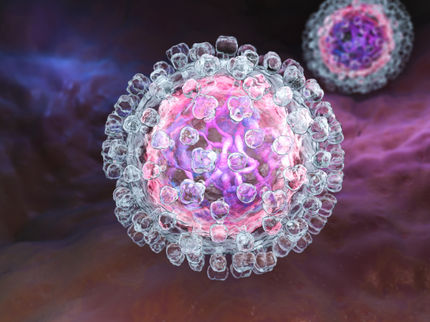Celgosivir Combination Therapy Demonstrates Positive Clinical Benefit in Chronic Hepatitis C Non-Responder Patients
Advertisement
MIGENIX Inc. has demonstrated proof-of-concept and evidence of clinical benefit in a Phase II study using the oral alpha-glucosidase inhibitor, celgosivir (MX-3253), in combination with pegylated interferon and ribavirin as compared to treatment with pegylated interferon and ribavirin alone in patients with chronic hepatitis C virus genotype 1 infections who were characterized as non-responders to prior therapy with optimized pegylated interferon plus ribavirin
Jim DeMesa, M.D., President and CEO of MIGENIX stated, "The top-line results from this study are very encouraging and validate our development program by demonstrating proof-of-concept of celgosivir in combination with pegylated interferon and ribavirin, with the goal of improving the treatment outcome for patients who currently have few effective therapeutic options. This, along with our preclinical data showing strong synergy between celgosivir and other anti-HCV drugs currently in development, makes us optimistic about the future potential of this first-in-class compound. With the completion of this non-responder trial, we will be working to provide a full data package to Schering-Plough over the next month for their exclusive review under our License Option Agreement and to complete our celgosivir combination Phase II study in treatment-naive patients, a clinical trial which began enrolling patients last month."
Celgosivir is an alpha-glucosidase I inhibitor and is currently the only anti-HCV drug in clinical development that acts on host-directed glycosylation, according to the company. In preclinical studies, celgosivir has shown excellent in vitro synergy with various interferons in the clinic or in development including Pegasys, PEG-Intron, Infergen, Alferon and IFN-omega (with or without ribavirin) and other drugs in development for the treatment of HCV (e.g. polymerase inhibitors) and therefore has the potential to be included as part of many combination therapeutic approaches to improve efficacy in anti-HCV therapy.
Most read news
Organizations
Other news from the department research and development

Get the life science industry in your inbox
By submitting this form you agree that LUMITOS AG will send you the newsletter(s) selected above by email. Your data will not be passed on to third parties. Your data will be stored and processed in accordance with our data protection regulations. LUMITOS may contact you by email for the purpose of advertising or market and opinion surveys. You can revoke your consent at any time without giving reasons to LUMITOS AG, Ernst-Augustin-Str. 2, 12489 Berlin, Germany or by e-mail at revoke@lumitos.com with effect for the future. In addition, each email contains a link to unsubscribe from the corresponding newsletter.


























































